April 2020-April 2021
The three-year Preschool Development Birth through Five Renewal Grant was awarded to the Kansas Children’s Cabinet and Trust Fund in April, 2020. This work of this $8.9 million per year grant is guided by the All In For Kansas Kids Strategic Plan. Year one of the grant (April 30, 2020 – April 29, 2021) has been impacted greatly by the experience of the COVID-19 pandemic. This public health crisis has significantly impacted Kansas children and families, the early childhood care and education workforce, and the broader early childhood system. Despite the challenges of the pandemic, early childhood system partners and collaborators pushed forth numerous efforts and initiatives throughout the year to further to goals of the strategic plan.
Activity One
Comprehensive Statewide Assessment
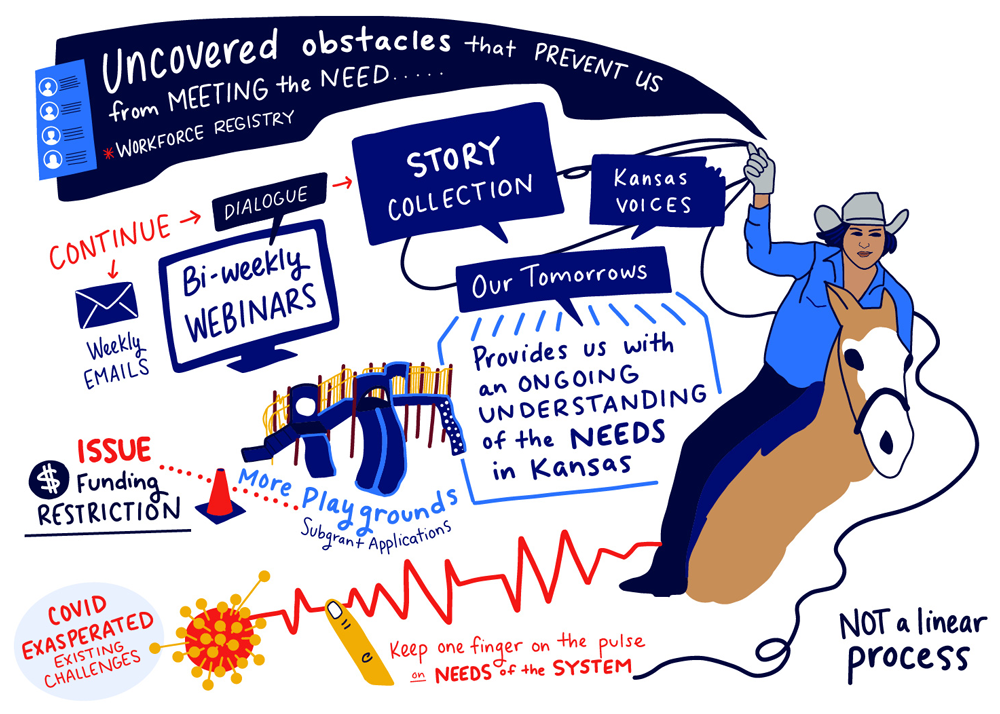
The 2020 Needs Assessment Update for the early childhood care and education system examines the ways in which gaps in accessibility and availability of services have grown wider and even more urgent than reflected in the 2019 Needs Assessment. The Needs Assessment update covers the time period of January to December 2020 and begins to explore the impact of the pandemic through the experiences of children ages birth through 5, and their families, as well as the early childhood care and education workforce and broader cross-sector system. Throughout this process, many bright spots continued to shine across the state. Providers often responded quickly and creatively to the rapidly changing needs of children and families, reinforcing our mantra of All In For Kansas Kids.
Activity Two
Strategic Plan
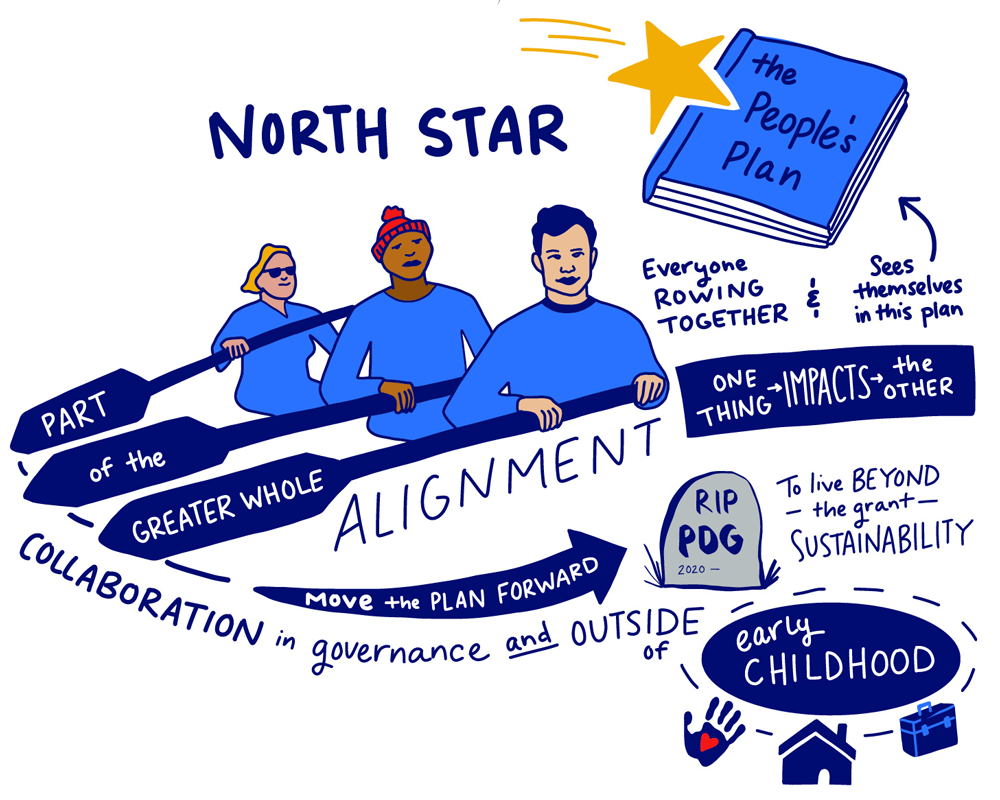
The All In For Kansas Kids Strategic Plan serves as the north star to guide the early childhood systems building efforts outlined in the activities of the PDG grant. Collaboration and alignment efforts are a focus in the early childhood governance structure and engagement with early childhood stakeholders helps to ensure that everyone understands the shared vision we are aiming towards.
Activity Three
Maximizing Parent and Family Knowledge
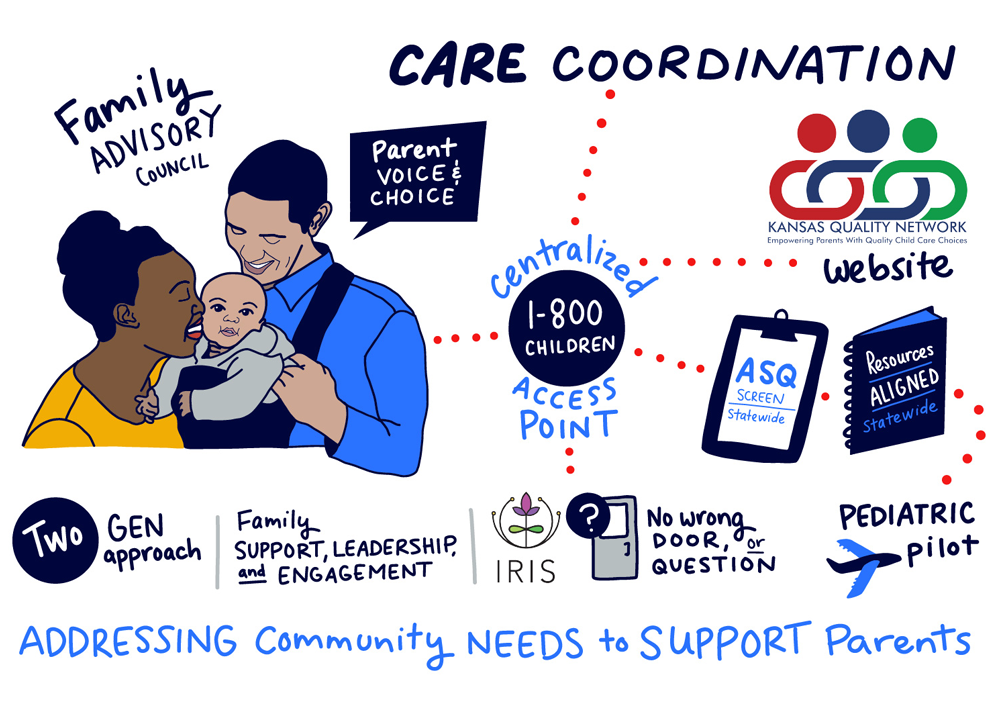
Bright spots in Maximizing Parent and Family Knowledge activities during year one include expansion of the Family Advisory Council to include new working groups. Investment in the statewide Ages & Stages Questionnaire (ASQ) enterprise account has expanded access to screening and referrals for children and families to ensure they are getting the supports they need. 1-800-CHILDREN, Kansas’ centralized access point and parent helpline offers 24-hour access to support. KDHE’s care coordination efforts with pediatric offices (Pediatric Pilot) and families transitioning from Part C to Part B for children with special health care needs (Bridges Pilot) help to provide increased navigation support.
Activity Four
Sharing Best Practices & ECCE Workforce
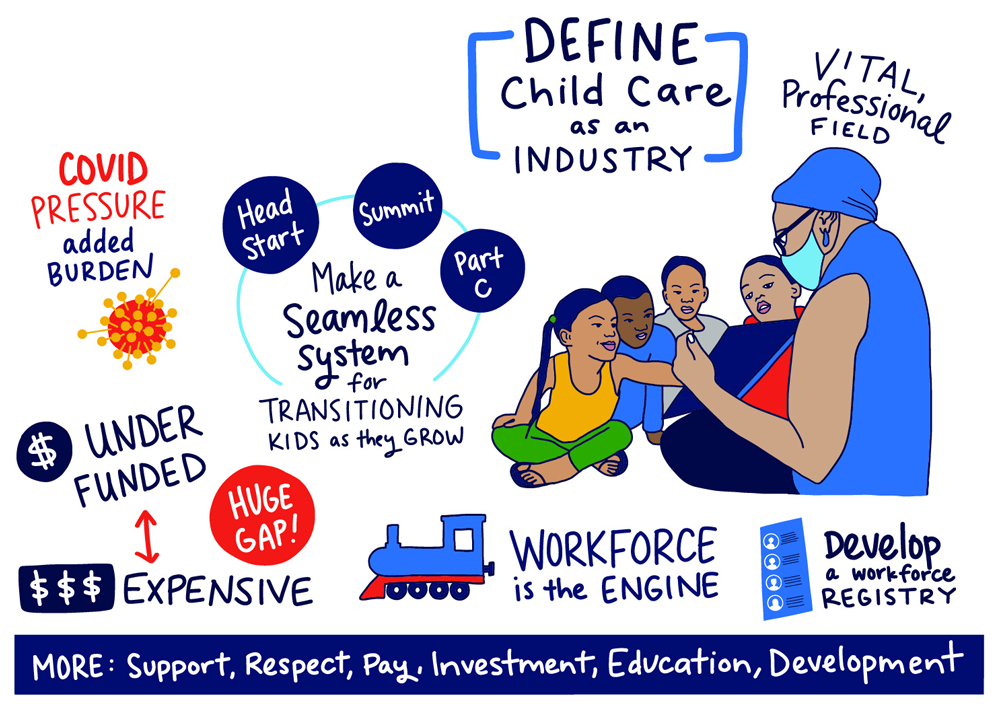
The COVID-19 pandemic has highlighted the essential nature of our early childhood workforce, as well as the gaps in lack of funding and support for child care, home visiting services, training, and parent engagement services. The PDG Quality Subgrants helped to fund efforts to close these gaps including retention bonuses, insurance stipends, and other community level approaches to support the workforce. The Kindergarten Transitions Summit and the Kindergarten Transitions Toolkit offer communities resources to support families in this transition. Development is underway for the Kansas Workforce Registry, an online repository of professional information, career pathways, training opportunities, career opportunities. The Professional Development Implementation Team is developing career pathways, and the Workforce Development Advisory Group are building the core competencies as well as diversity, equity, and inclusion efforts.
Activity Five
Improving Overall Quality & Service Integration
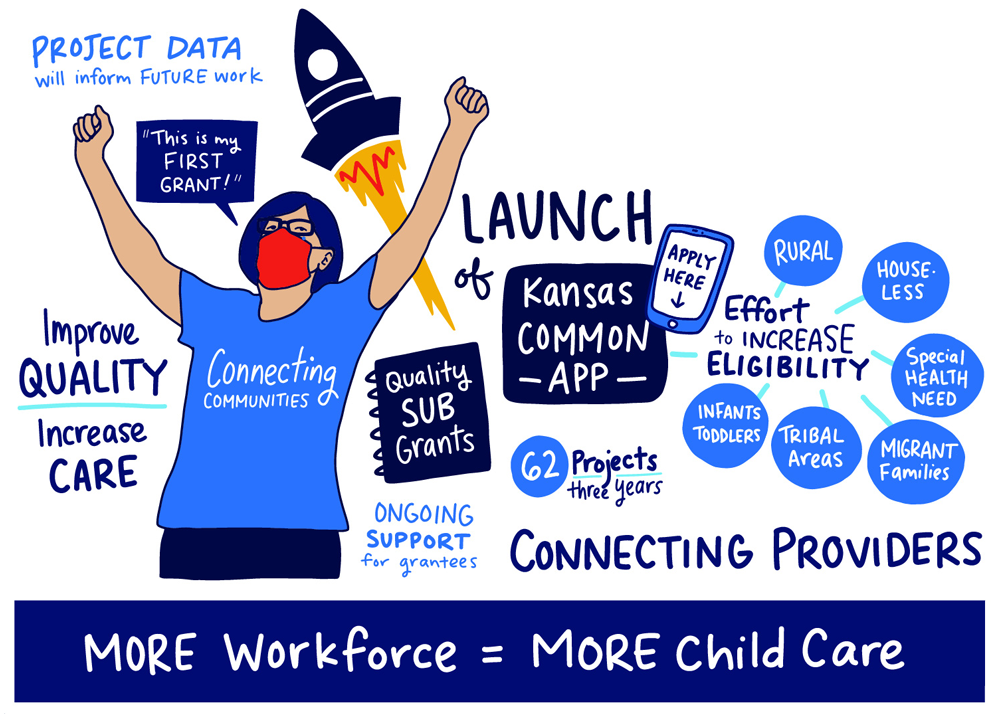
PDG Quality Subgrants help communities and service providers address needs and gaps through locally-driven ideas and approaches across five categories: child care access, rural child care, connecting families to services, kindergarten readiness, and improving quality of care. Communities will test local approaches and through this process we will aim to scale what works across the state. The launch of the Kansas CommonApp offers a central location for early childhood funding grant proposals and reporting. PDG year-one saw over 1000 applications submitted through this pilot project, and through feedback and evaluation, we hope to continue development and expansion to centralize and streamline grant awards.
Activity Six
Monitoring, Evaluation, & Data Use
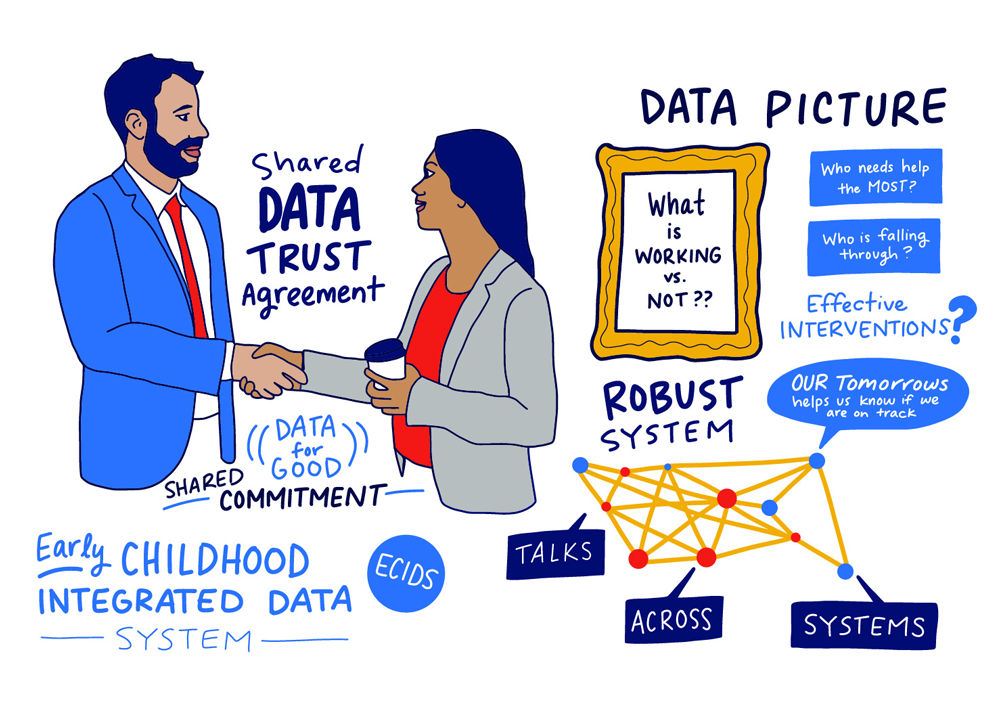
The PDG evaluation will examine how we are implementing programs across our mixed delivery system. Development of the Early Childhood Integrated Data System is under way, with the goal of identifying what programs and services are producing the greatest impact for children. A pilot data trust agreement is exploring data from the Department of Children and Families and the Kansas Children’s Cabinet and Trust Fund Early Childhood Block Grantees.
